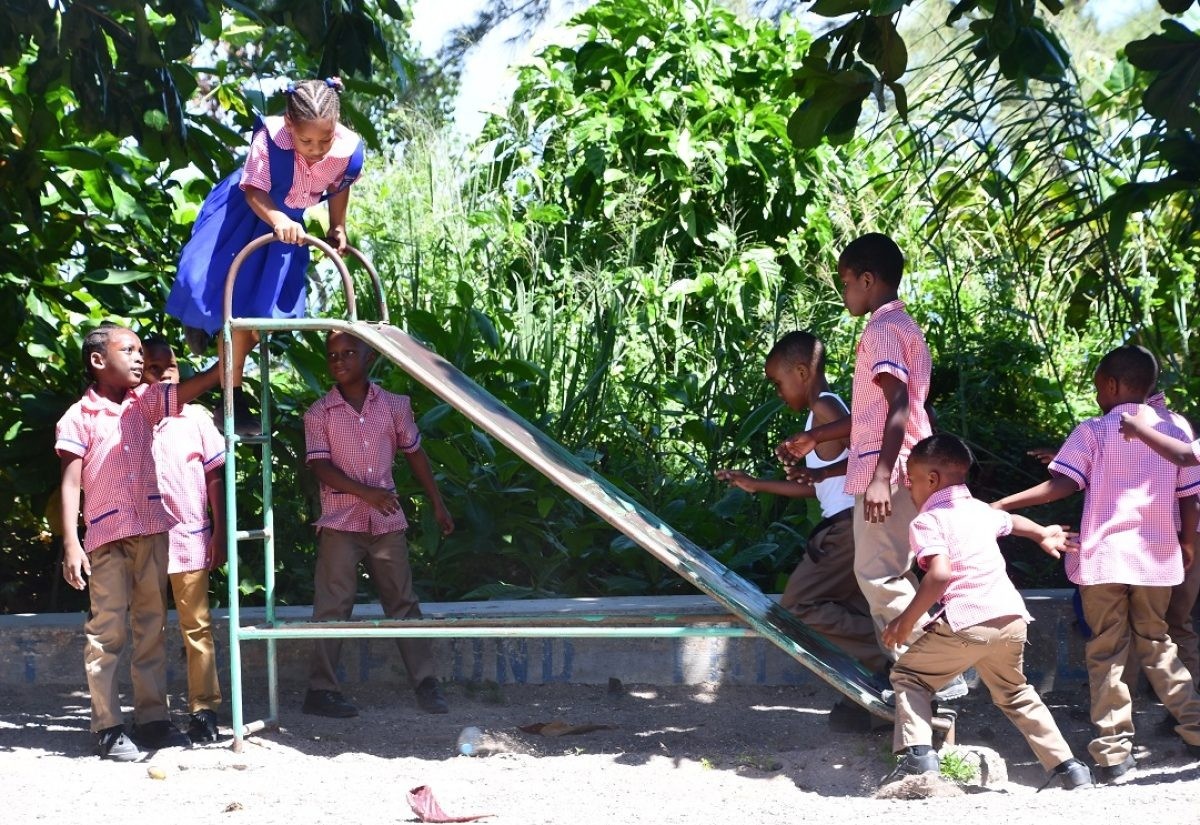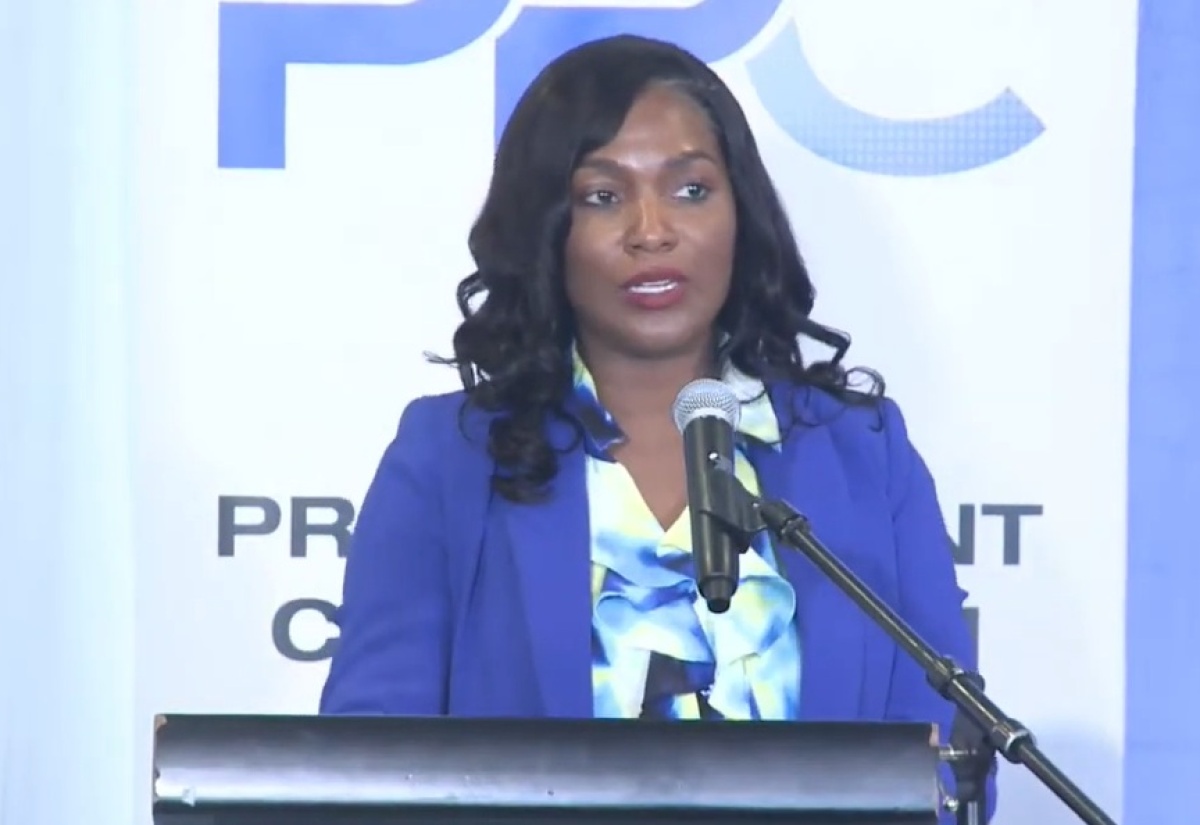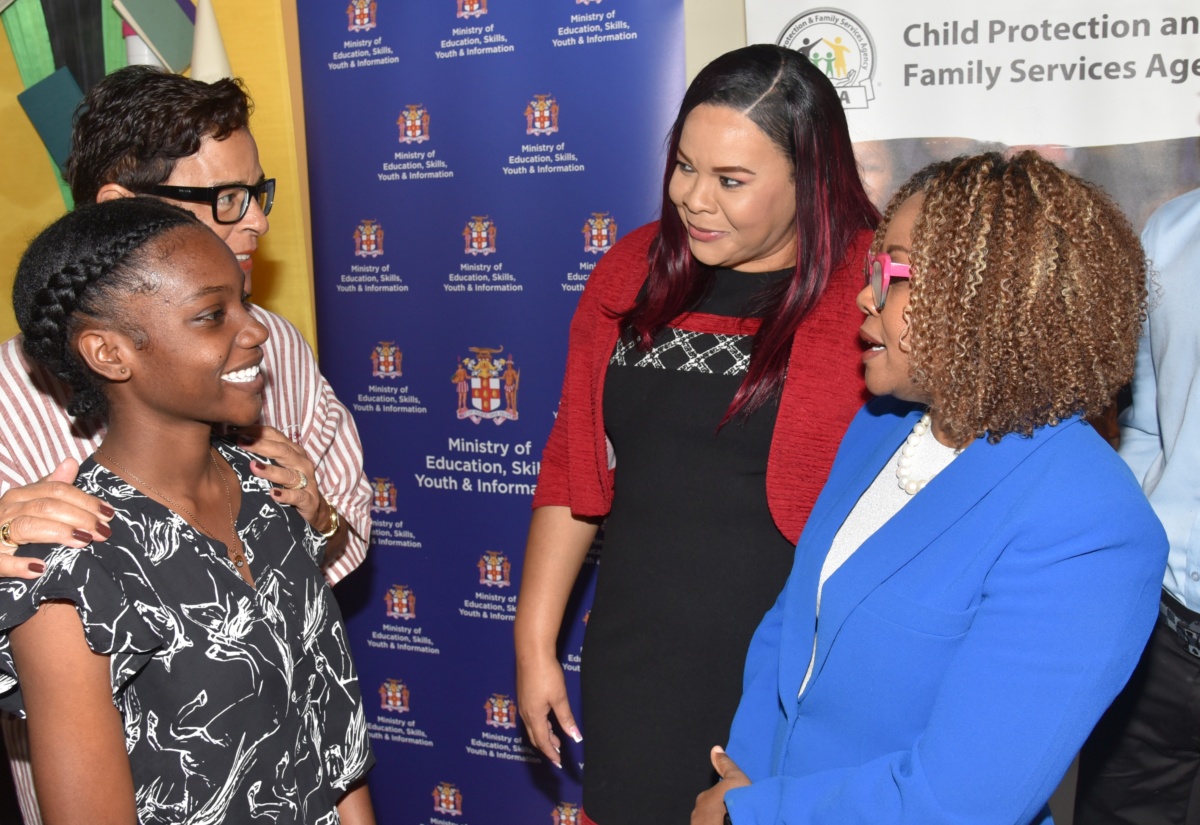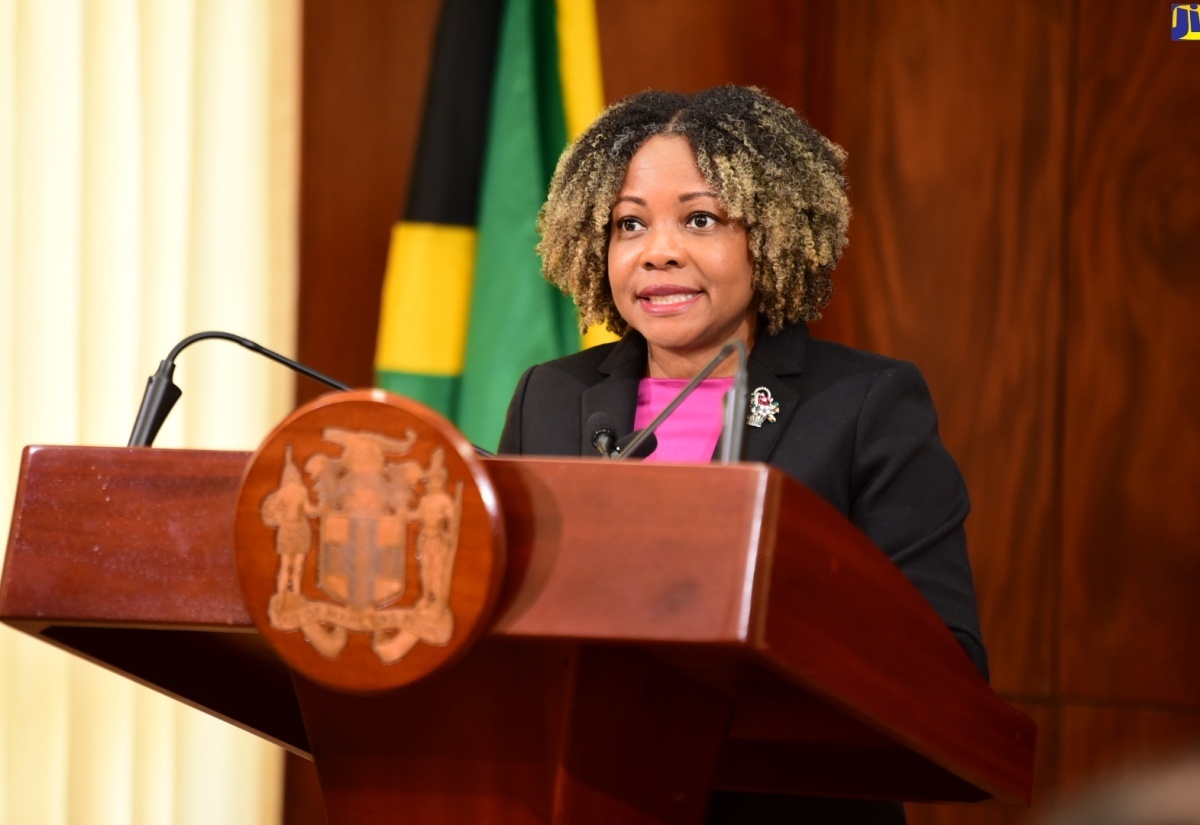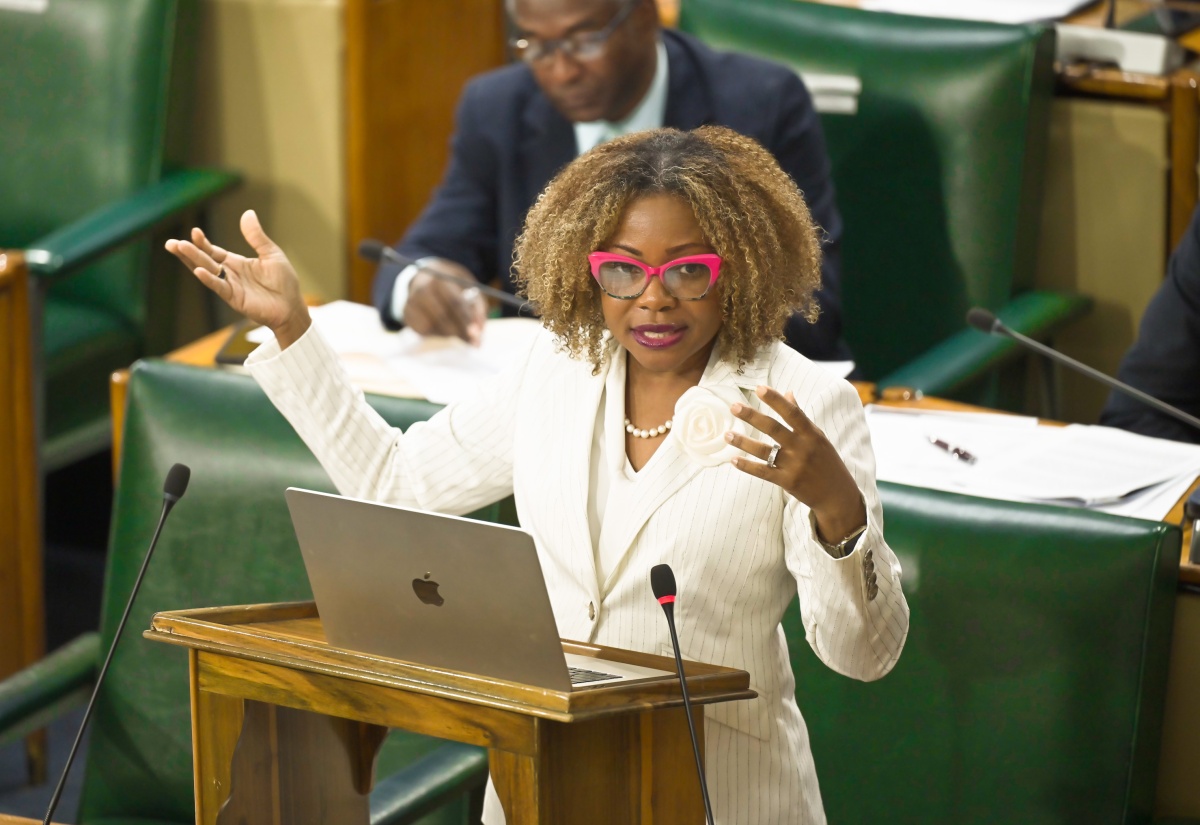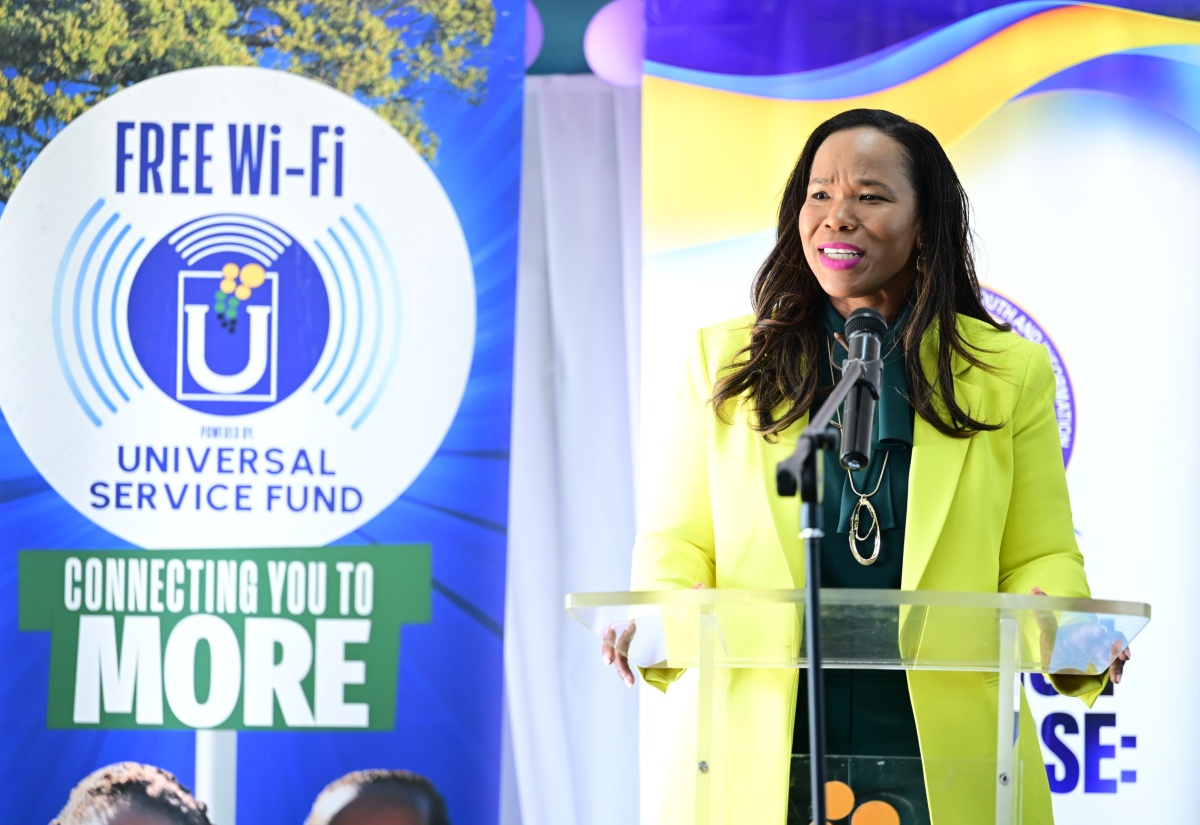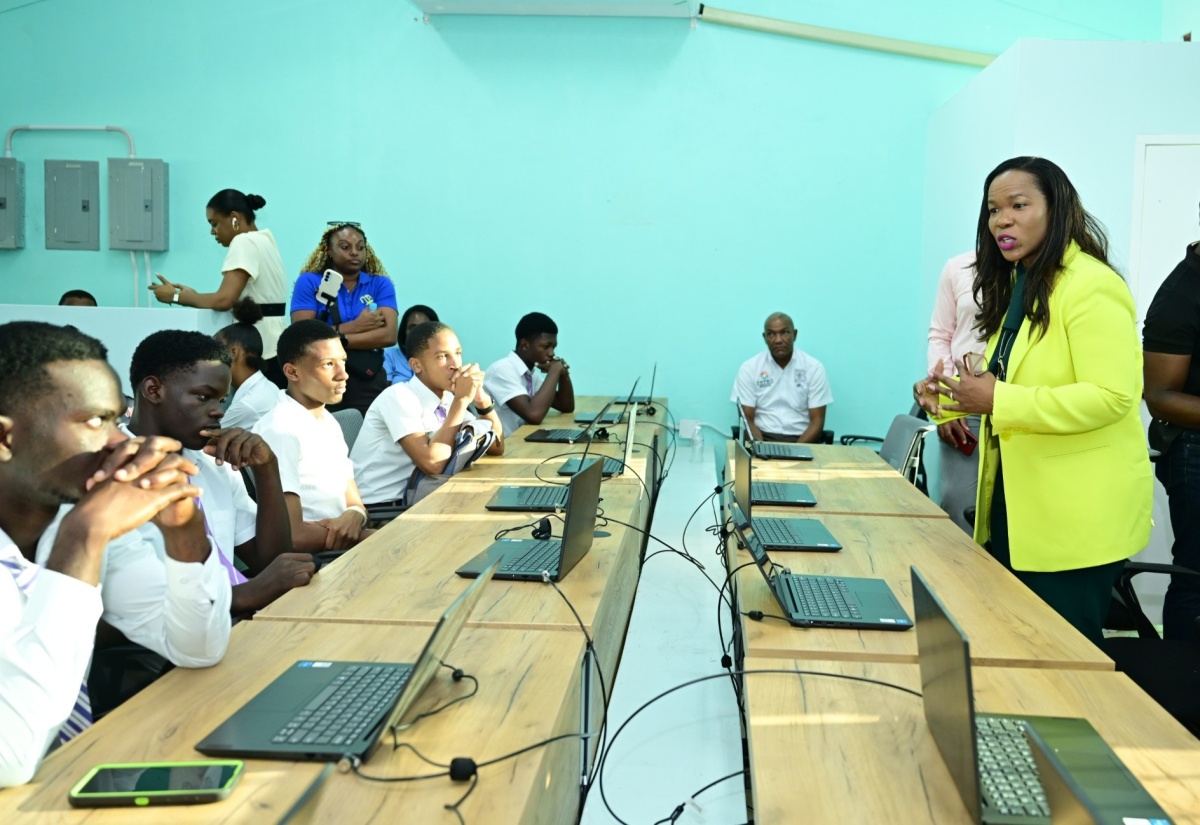The Ministry of Education, Skills, Youth and Information has announced that all schools resumed full operations as of January 14, following the passage of Hurricane Melissa.
This was disclosed by Portfolio Minister, Senator Dr. the Hon. Dana Morris Dixon, in a Ministerial Statement to the Senate on Friday (January 23), providing an update on post‑Hurricane Melissa recovery.
“Within 90 days of the most devastating weather event in recent memory, a ‘one in 100 years’ storm, all schools resumed operations and all schools resumed teaching and learning,” she said.
Senator Morris Dixon informed that the Ministry has been deploying resources to the schools most in need. In partnership with the United Nations Children’s Fund (UNICEF), 92 heavy‑duty, classroom‑sized tents were donated to schools in western Jamaica.
“UNICEF will also be distributing around 300 learning kits in short order… some of our schools have already been able to utilise these. So, if your school is damaged, that ‘school in a box’ can be used anywhere… it has all of the learning devices that would be needed,” she said.
Meanwhile, the Minister stated that the development of learning kits is integral to sustaining student engagement, even when they are not physically present at school on a given day.
“All schools are operational but not all of them have been repaired, and so some schools are on a shift system. You have students coming in some days and not others, and so these learning kits are absolutely important for them to take home,” she stated.
Senator Morris Dixon informed that 4,552 modified curriculum guides, approximately 34,000 literacy and numeracy preparatory materials, and more than 43,000 learning workbooks are being distributed to students and teachers.
“We are targeting key transition years and examination cohorts so that students can consolidate foundational skills and stay on track despite the disruption,” she informed.
Meanwhile, the Minister noted that the World Food Programme (WFP) has also been a significant partner in supporting the education sector.
“They have been providing meal support to families and young children. Recently, they have extended mobile storage units to our damaged institutions to remove another barrier to their normal operations,” she said.
Dr. Morris Dixon further noted that the WFP has deployed a technical team on the ground, engaging with vulnerable communities and schools to identify priority institutions and assess the feasibility of restarting and strengthening the School Feeding Programme through emergency food solutions.
“As a part of the work of the World Food Programme, we are working with the Ministry of Agriculture [Fisheries and Mining] to look at how we can expand the number of school farms and greenhouses, and how we can make those more resilient, going forward. We are not just thinking about the physical structure. We are also looking at nutrition, and we feel that as we build in resilience, it’s important that our school farms and greenhouses are also resilient,” she stated.
Additionally, Senator Morris Dixon noted that, in terms of hard educational resources, the Ministry has procured more than 9,542 pieces of furniture, which are being delivered to outfit newly repaired and reopened classrooms. She added that 125 schools have already benefited from these deliveries.
“I was able to witness one of these deliveries when I visited a few weeks ago. I saw the relief and renewed confidence it brought to the staff and students, first-hand. I know the impact of these deliveries,” she said.
Some of the schools that have benefited include Accompong Primary and Top Hill Primary, St. Elizabeth; Mile Gully Primary and Harry Watch Primary, Manchester; Alderton Primary and Infant, and St Christopher’s School for the Deaf, St. Ann; Hague Primary, Trelawny; Herbert Morrison Technical High and Howard Cooke Primary, St. James; and Cave Valley Primary, Hanover.
Senator Morris Dixon further indicated that Minister without Portfolio in the Office of the Prime Minister with Responsibility for Science, Technology and Special Projects, Dr. the Hon. Andrew Wheatley, together with the team at the Office of the Prime Minister (OPM), has been providing hundreds of science, technology, engineering, arts and mathematics (STEAM) toys to schools in western Jamaica.
She informed that more than 1,400 toys were handed over during Christmas and into the New Year.
“This has truly been an all-of-government effort. The OPM is supporting play-based learning, creativity, problem-solving, and early exposure to science, technology, engineering, the arts and mathematics, even as communities recover. We feel that it is important, and we have been emphasising play as a part of dealing with the psychosocial trauma for the children,” the Minister said.
Senator Morris Dixon further advised that the National Water Commission (NWC) and the Jamaica Public Service Company (JPS) have been working with the Ministry and its team to prioritise schools for utilities restoration.
“Each week, the JPS meets with the Ministry and team, and through those meetings, the JPS has been able to identify the schools on the path and the route that they are now restoring and have prioritised our schools. I thank the JPS and the NWC for all of that work that they have done,” she said.
Hurricane Melissa made landfall in Jamaica on October 28, 2025, significantly disrupting several sectors, including the education sector, particularly in western Jamaica.


